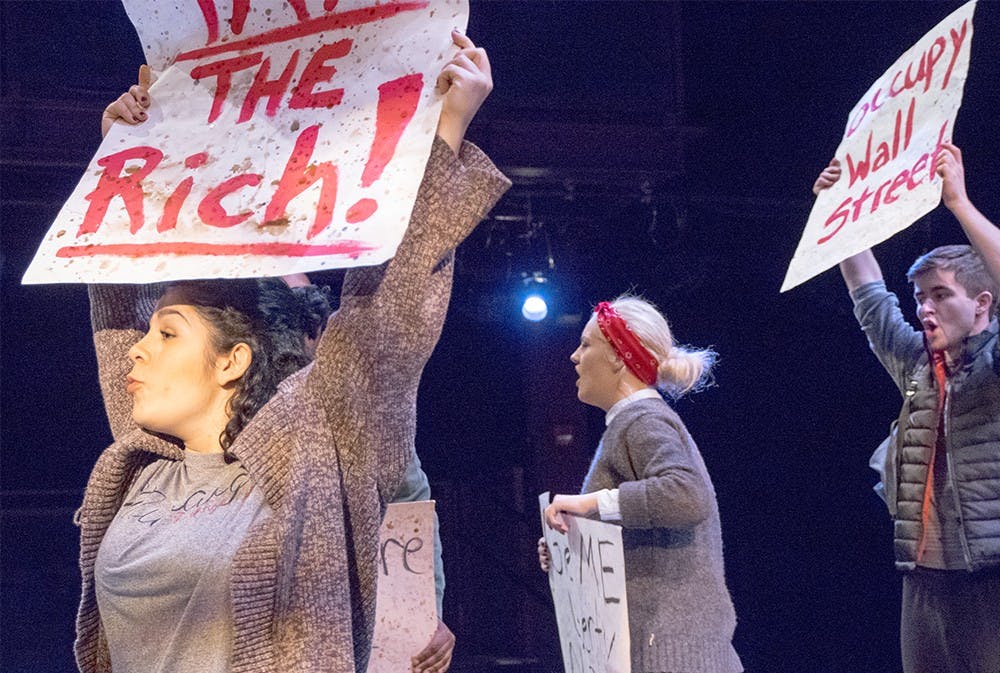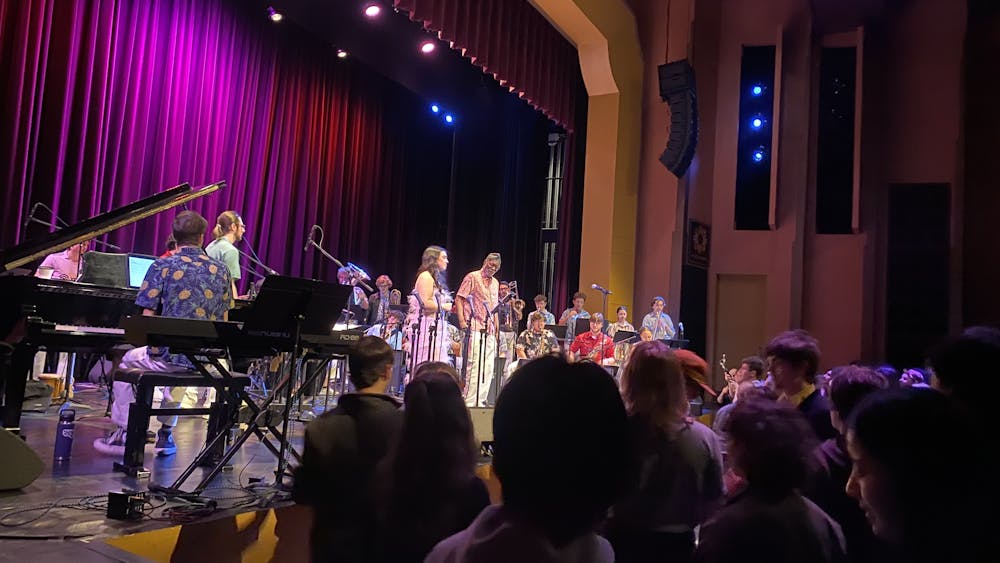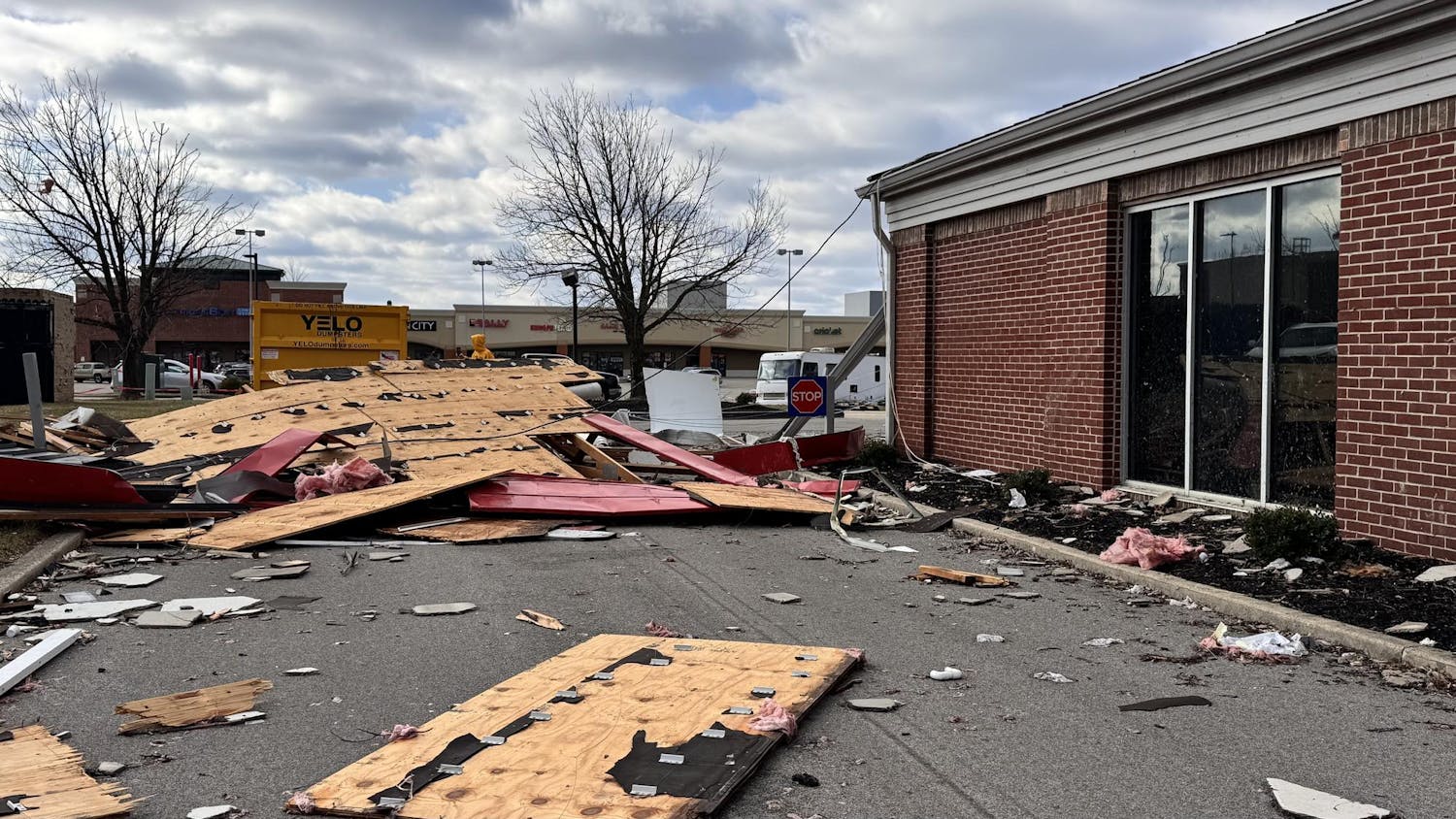Mauricio Miranda wanted to challenge himself when he started to write his thesis for his third year in the master of fine arts playwriting program at IU.
He knew he wanted to write about two things: the Peruvian conflict in the early 1990s and the Occupy Wall Street movement in New York City in 2011.
At first, he didn’t think there was a connection, but he found a way to combine the two in “Occupants,” which is one of two new plays to be performed this weekend in IU Theatre’s “At First Sight,” which features new plays written by students.
“They were two different plays in my head,” Miranda said. “Then at one point, I thought, ‘What if a person from the civil war in Peru became a war refugee in Manhattan?’ The timeline was perfect.”
The timeline mirrors his own life. He grew up in Lima, Peru, during its civil war, moved to the United States at age 18 and lived in Hamilton Heights in Manhattan during the Occupy movement.
Miranda did not know much about the civil war while it was happening around him, he said. He was only about 8 years old, and his parents did not tell him what was going on. Even though the main conflict occurred in the Andes, he said he remembers acts of terrorism that spread to the capital in the form of citywide blackouts.
“There was this collective concern that people didn’t speak about,” Miranda said. “It was like in ‘Harry Potter,’ you can’t say the name Voldemort. You can’t say the Shining Path in front of kids, because they would start asking questions. You don’t want them to know there are big bad guys in the Sierra out to get them.”
In the play, Alma is a Peruvian woman living in Manhattan who is so emotionally traumatized from the civil war she cannot leave her apartment. Her daughter Gabi must work to support herself and her mother, who locks all eight locks in her apartment at the stroke of midnight, whether her daughter has come home or not.
“It’s a very interesting story about two women trying to find themselves and who they are,” director Katie Horwitz said. “Alma is very interesting because she’s from a world that most of us have never experienced and couldn’t possibly imagine. We watch her journey from someone who is afraid into someone who makes a choice to rise up.”
Gabi, who comes from this household of fear, has made the choice to not be afraid of anything, Horwitz said.
She is a self-proclaimed fighter who kickboxes in her spare time. However, she also needs to find her place in the world, Horwitz said.
When Gabi becomes accidentally involved in the Occupy movement, she begins to find her purpose, Miranda said.
Her whole life, she has felt caged inside her mother’s apartment, unable to go out and experience her sexuality or her identity as a first-generation Peruvian American.
“No matter what’s happening onstage, we always have the movement churning underneath,” said Ashley Dillard, who plays Gabi’s love interest, Sienna. “That is great theater, that is what people want to come see. They want to see the underdog fight. We see Gabi fighting to keep her place in the world and not be kept down.”
This fight for identity will especially resonate with a college-aged audience, because college is where sense of self is molded, Dillard said. Gabi is 19 in the play, and she goes through many of the same struggles college students go through when creating their own views of the world around them.
The relatability of the play is in large part due to the way Miranda chose to write it, Dillard said.
“He writes the underbelly,” Dillard said. “He writes the people who are being oppressed, for the people who don’t normally have a voice. That’s what I want to watch — people who don’t normally have a voice, because it’s interesting to hear what they have to say.”






